
GeriPal - A Geriatrics and Palliative Medicine Podcast
A geriatrics and palliative medicine podcast for every health care professional.
Two UCSF doctors, Eric Widera and Alex Smith, invite the brightest minds in geriatrics, hospice, and palliative care to talk about the topics that you care most about, ranging from recently published research in the field to controversies that keep us up at night. You'll laugh, learn, and maybe sing along.
CME and MOC credit available (AMA PRA Category 1 credits) at www.geripal.org
- Update frequency
- every 7 days
- Average duration
- 42 minutes
- Episodes
- 373
- Years Active
- 2016 - 2025

The Angry Patient: A podcast with Dani Chammas and Keri Brenner
Think about the last time a patient yelled at you in anger. How did you react? The last time this happened to me I immediately went on the defensive despite years of training in serious illness com…
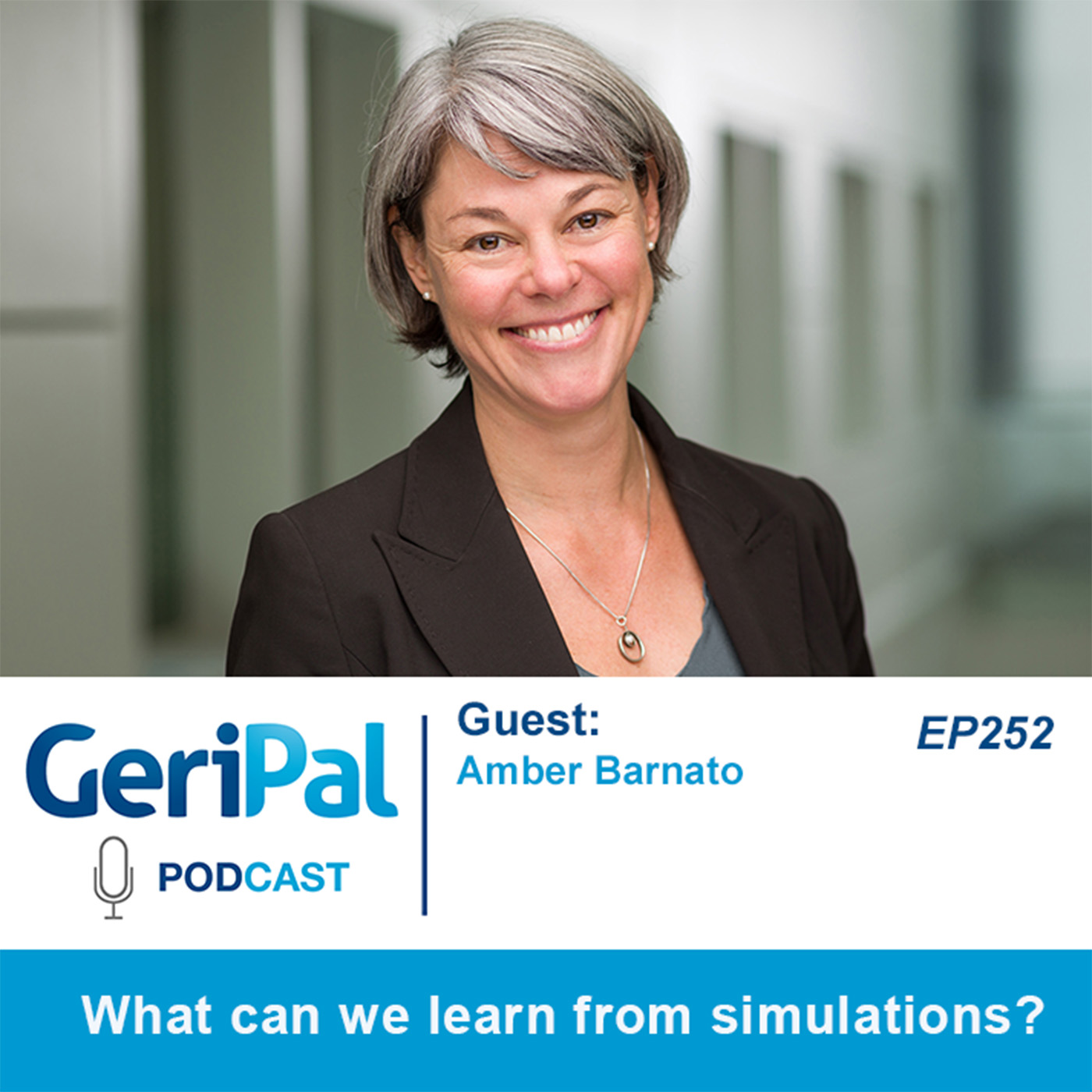
What can we learn from simulations? Amber Barnato
Amber Barnato is an expert in simulation studies. A health services researcher and palliative care physician, Amber lauds the ability of simulation studies to isolate one variable in a study. For e…

Books on Becoming A Better Mentor (and Better Person): Bob Arnold
Sometimes you read a book and get a flash of insight - that “ah ha!” moment - about yourself and the ways you interact with others. That happened to me when reading “Range: Why Generalists Triumph i…

On Racism & Ageism: Ramona Rhodes, Sharon Brangman, Tim Farrell, and Nancy Lundebjerg
The Covid epidemic laid bare two major structural issues. First, Black and Latinx persons experienced much higher rates of mortality than other groups. Second, as we discussed in last week’s podca…

Improving Nursing Home Quality: Jasmine Travers, Alice Bonner, Isaac Longobardi, and Mike Wasserman
In April 2022, the National Academies of Sciences, Engineering and Medicine (NASEM) issued a report on how the United States delivers, regulates, finances, and measures the quality of nursing home ca…

Improving Hospital Care for Older Adults through Acute Care for Elders (ACE Units): A Podcast with Kellie Flood and Stephanie Rogers
Acute Care for Elders (ACE Units) have been around for over a quarter of a century. Randomized trials of ACE units date back to 1996 when Seth Landefeld and colleagues published a study in NEJM showi…

Conscientious Provision of MAID and Abortion: Robert Brody, Lori Freedman, Mara Buchbinder
Today’s podcast may be a stretch for our listeners. Please stick with us. No matter what your position on medical aid in dying (I’m ambivalent) or abortion (I’m pro-choice), this is a bioethics pod…
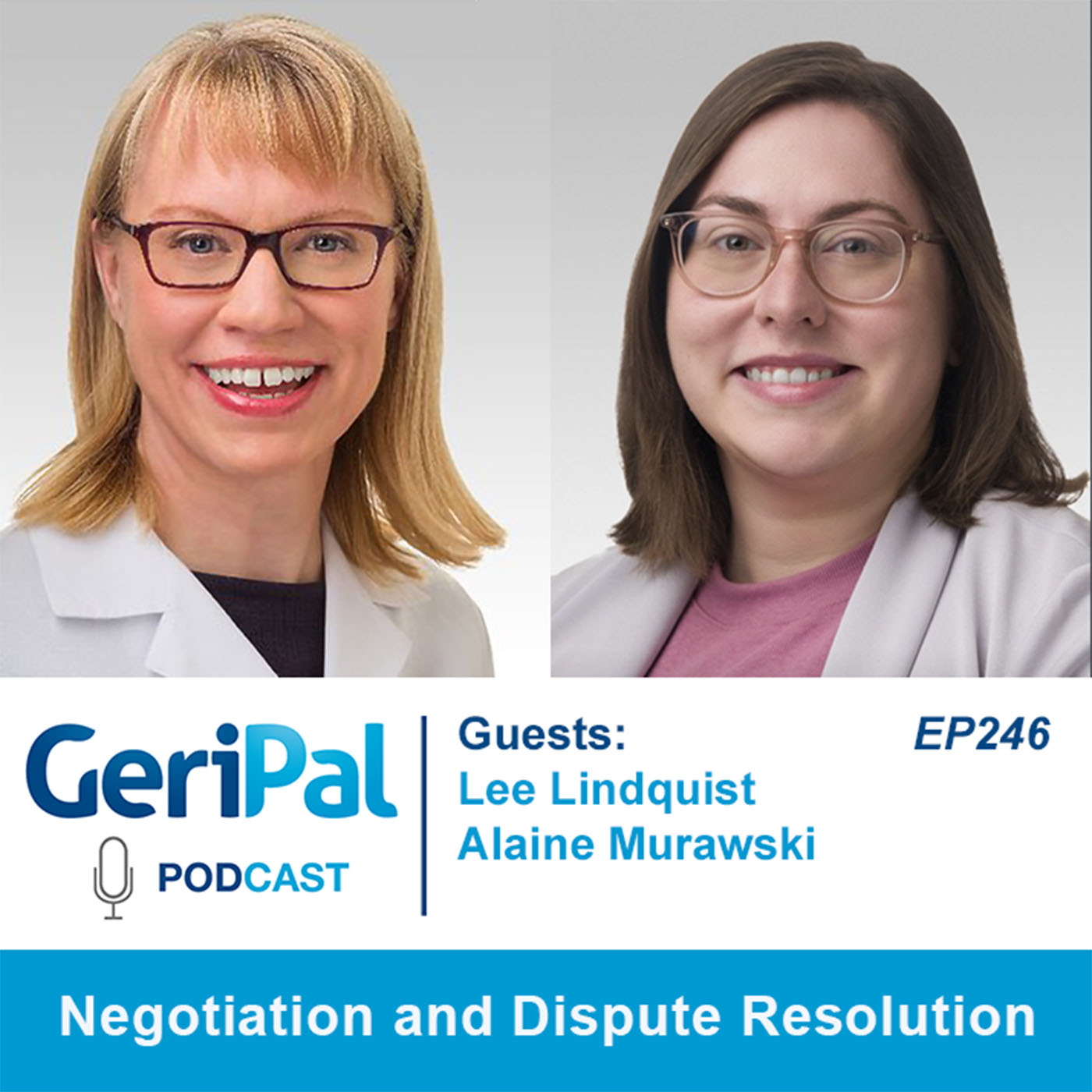
Negotiation and Dispute Resolution: A Podcast with Lee Lindquist and Alaine Murawski
From discussing “taking away the keys to the car” for a cognitively impaired older adult to decisions to limit life sustaining treatments at the end of life, conflict and disagreement permeate everyt…

Is it time for geriatricians to get on board with lecanemab? Jason Karlawish and Ken Covinsky
We’ve talked at length on prior podcasts about the failures of aducnumab, Biogen, and the FDA’s decision to approve it.
But wait, there’s a shiny new anti-amyloid drug, lecanemab! (No it’s not jus…

Storycatching: Podcast with Heather Coats and Thor Ringler
Eric and I weren’t sure what to call this podcast - storytelling and medicine? Narrative medicine? We discussed it with today’s guests Heather Coats, palliative care NP-scientist, and Thor Ringler,…

Transforming the Culture of Dementia Care: Podcast with Anne Basting, Ab Desai, Susan McFadden, and Judy Long
What would it take to transform dementia care? While a lot of hope and money is being put into new monoclonal amyloid antibodies like lecanemab, the evidence is that while they are great in reducing…

Assisted Living Communities: Podcast with Sheryl Zimmerman, Kenny Lam, and Ken Covinsky
Assisted Living Communities (no longer preferable to call them Assisted Living Facilities, as we learned on the podcast) are…what, exactly? That’s the central question on today’s podcast. The probl…

Loss, Grief, and Wellness Debriefings: A Podcast with Matt Loscalzo, Vickie Leff, and Craig Blinderman
Health care professionals are human, and as humans we experience loss both in and out of work. You’d imagine though that our professional expertise and experiences in helping patients and families c…

New Prognostic Models for Older Adults: Alex Lee, James Deardorff, Sei Lee
Dr. Faith Fitzgerald once quipped that prognostic modeling is the “punctilious quantification of the amorphous.” She has a point. Prognosis is inherently uncertain. As Alex Lee says on our podcast…

Demystifying the Role of HHS and ASPE in Guiding Federal Aging Policy and Priorities with Dr. Tisamarie Sherry
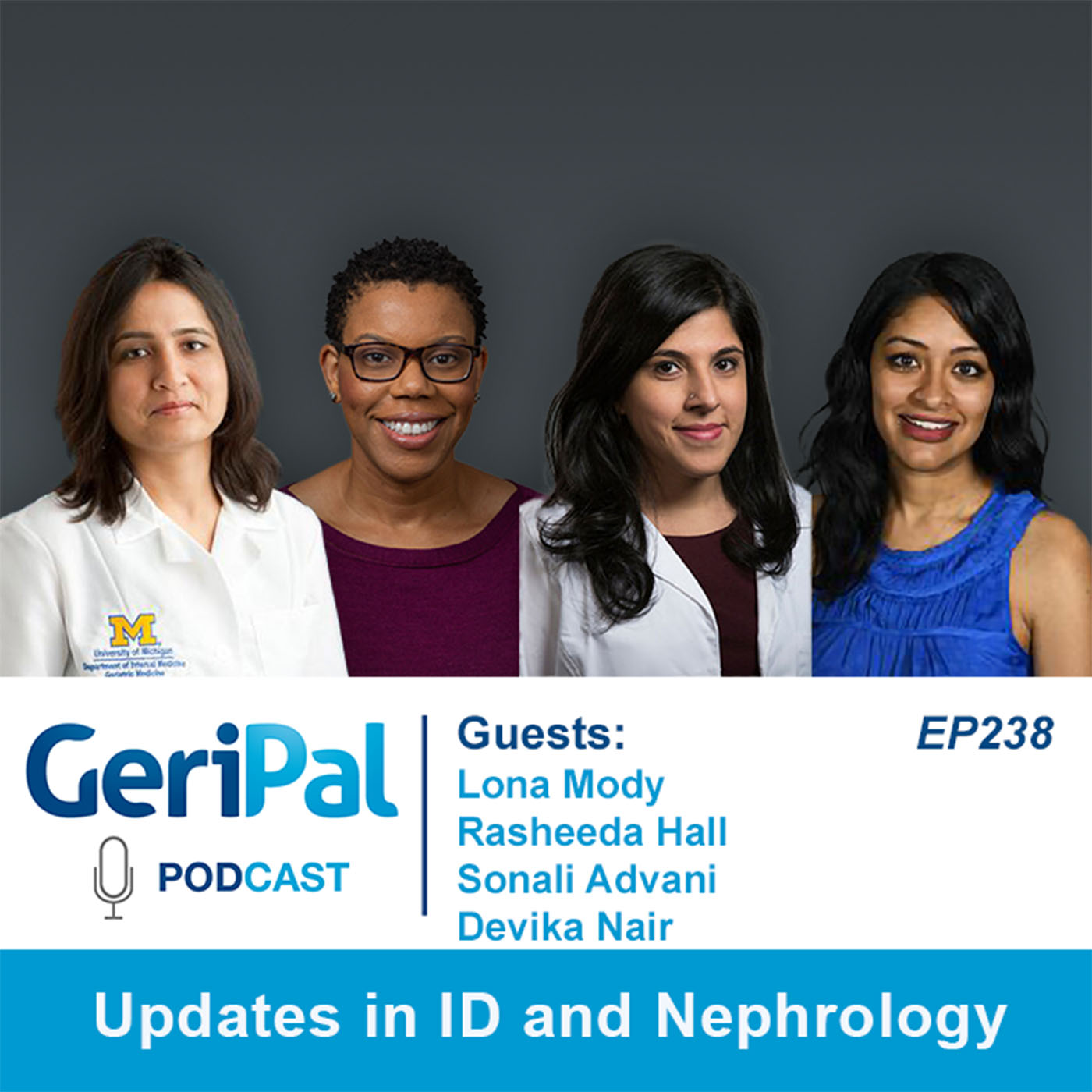
Updates in ID and Nephrology: Lona Mody, Rasheeda Hall, Devika Nair, Sonali Advani
When I’m on service these days there is inevitably a moment when a resident says “Patient so-and-so is on X” - and I have absolutely no idea what X is. Modern subspecialist practice advances at such…
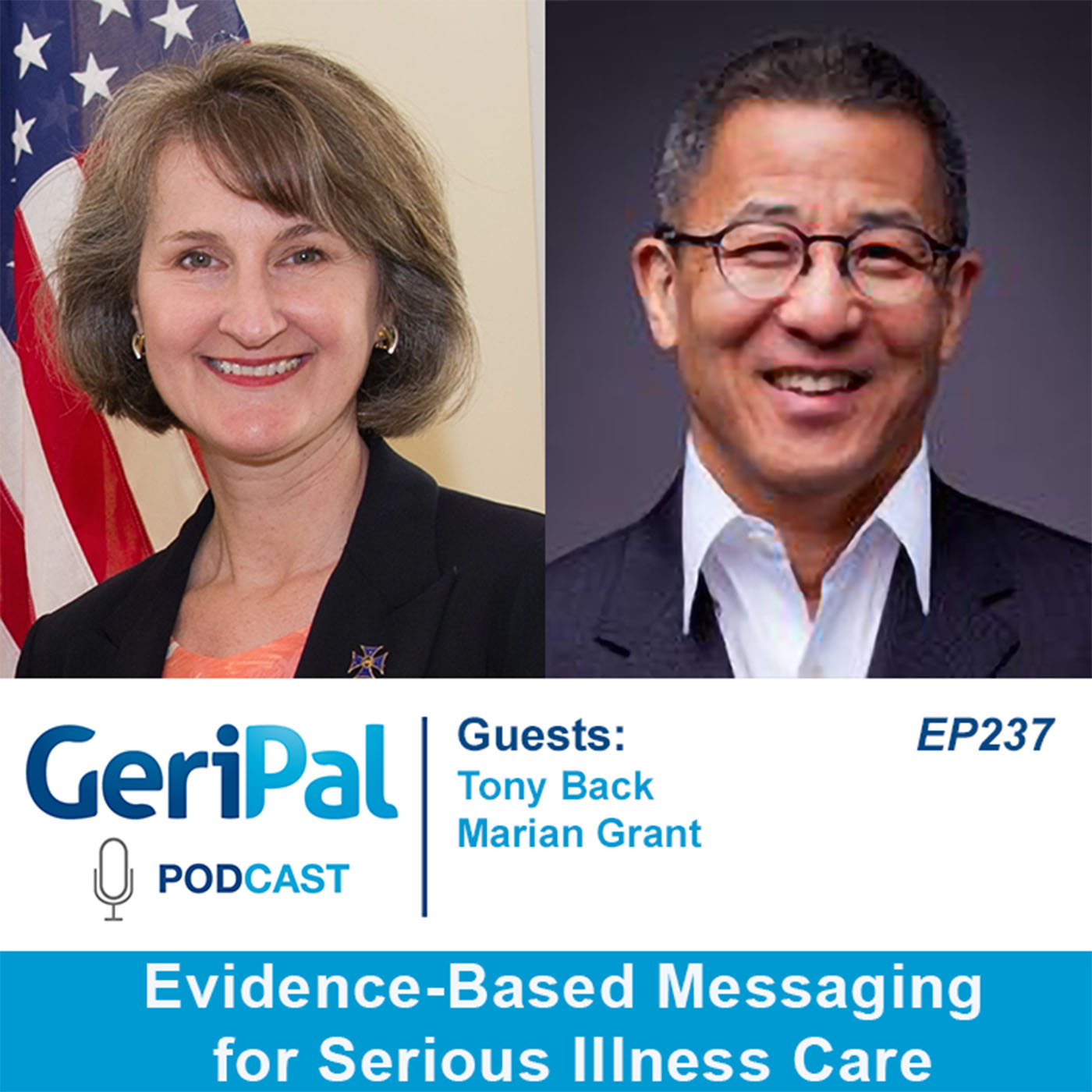
Evidence-Based Messaging for Serious Illness Care: A Podcast with Tony Back and Marian Grant
Earlier this year palliative care was the correct response to the following clue on the game show Jeopardy:
From a Latin word for “to cloak”, it’s the type of care given to seriously ill patients to…

Advanced Pain Management in Cancer: Janet Abrahm
Have you had difficulty managing a particular type of cancer pain? For me it’s radiation induced mucositis/esophagitis. Janet Abrahm is one of the world’s experts in pain and symptom management for…
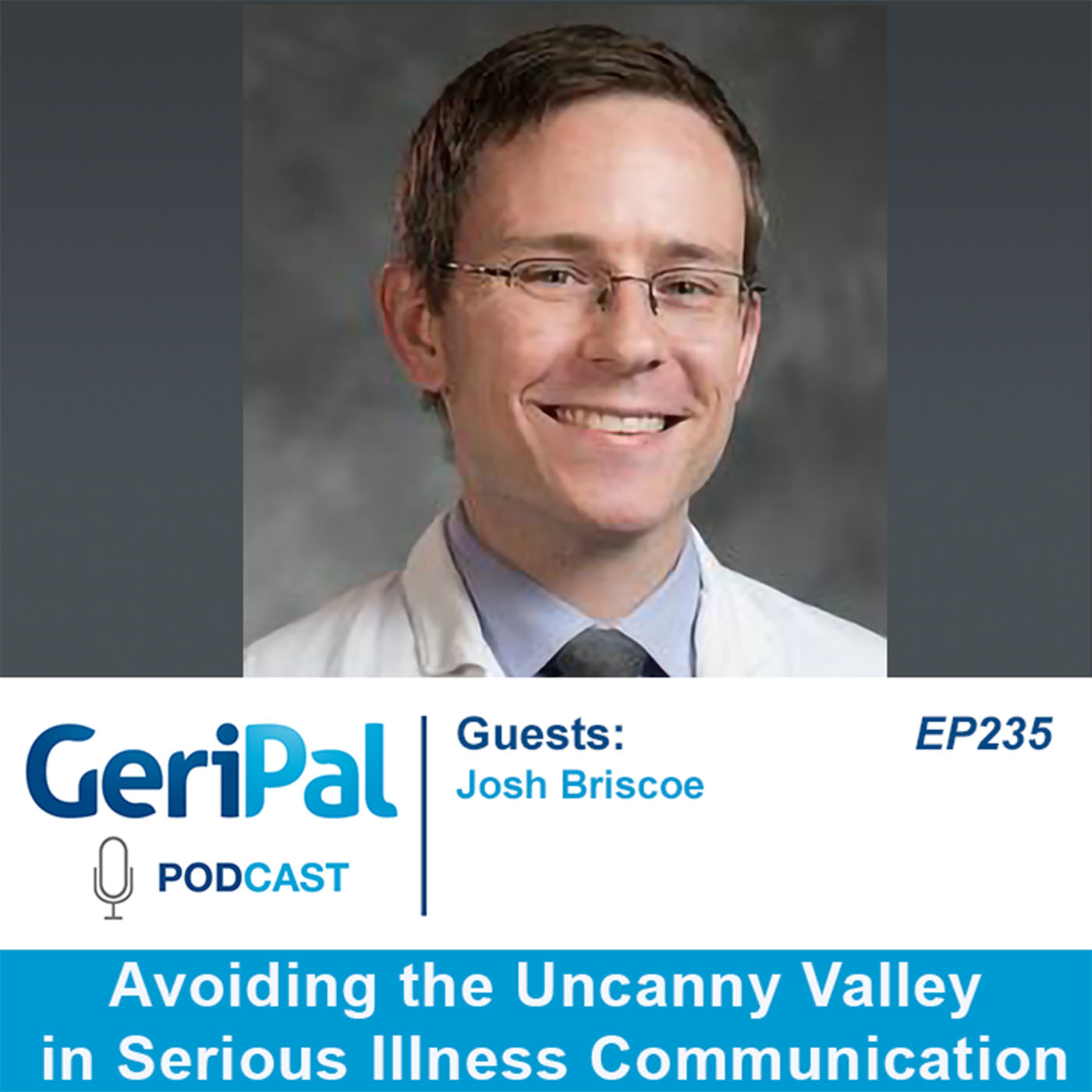
Avoiding the Uncanny Valley in Serious Illness Communication: Josh Briscoe
Have you ever had that moment when talking to a patient, when you realized that the phrase you just uttered, which you’ve uttered a hundred times before, came out rote and scripted? Maybe some phras…

Aortic Stenosis, TAVRs, and Code Status: A Podcast with Gwen Bernacki and Ashok Krishnaswami
Transcatheter aortic valve replacement (TAVR) has revolutionized the treatment of valvular heart disease for patients with severe aortic stenosis, a condition that affects one in ten adults older tha…